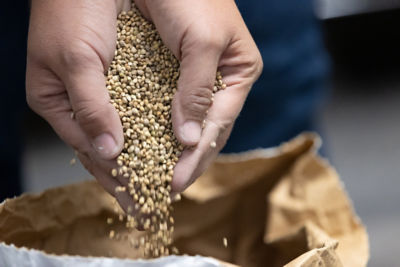Causal Agent
Onion yellow dwarf virus
Vector
Many species of aphids
Distribution
Worldwide
Symptoms
Infected leaves have symptoms ranging from yellow streaks to complete yellowing. Leaves tend to flatten, crinkle, twist and bend over. Plants may be wilted and dwarfed and bulbs usually remain solid but do not reach their full size. In seed crops, plants produce smaller flower clusters and fewer florets.
 Foliar symptoms showing flattening and twisting of the leaves.
Foliar symptoms showing flattening and twisting of the leaves.
Conditions for Development
The virus is carried by infected seed bulbs, onion sets and volunteer onions. Many aphid species can transmit this virus from infected to healthy plants. Plants that are infected at a young stage may form small bulbs or fail to form bulbs, whereas plants infected during mid-season may produce slightly undersized bulbs.
Control
Some onion varieties are tolerant and can help reduce losses from this disease. The use of true seed for onion production results in virus-free plants since the virus is not seed-borne. The use of virus-free bulbs and sets, and producing crops in an area where the virus is absent are also effective. Roguing out infected plants helps to reduce the incidence of this virus.



